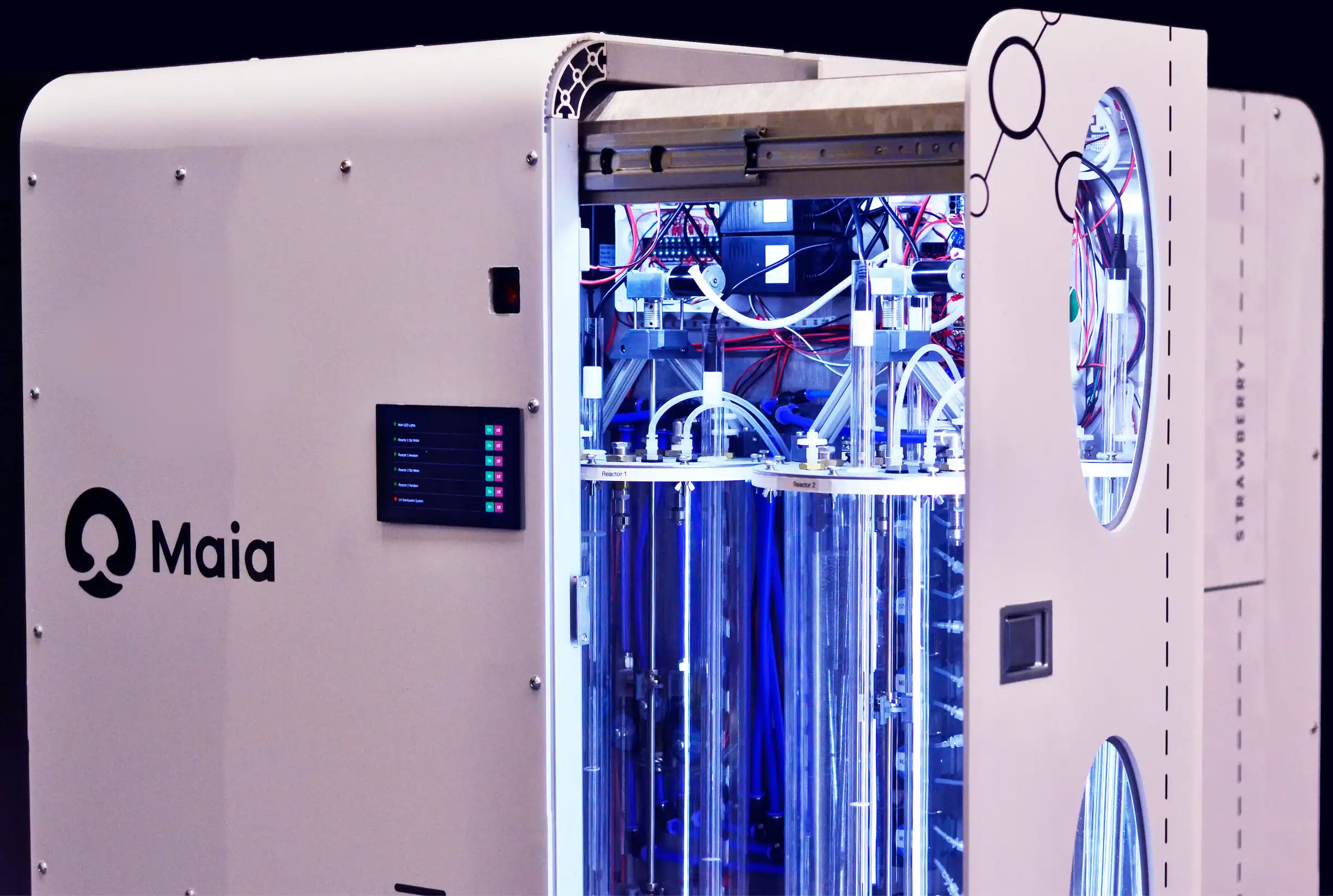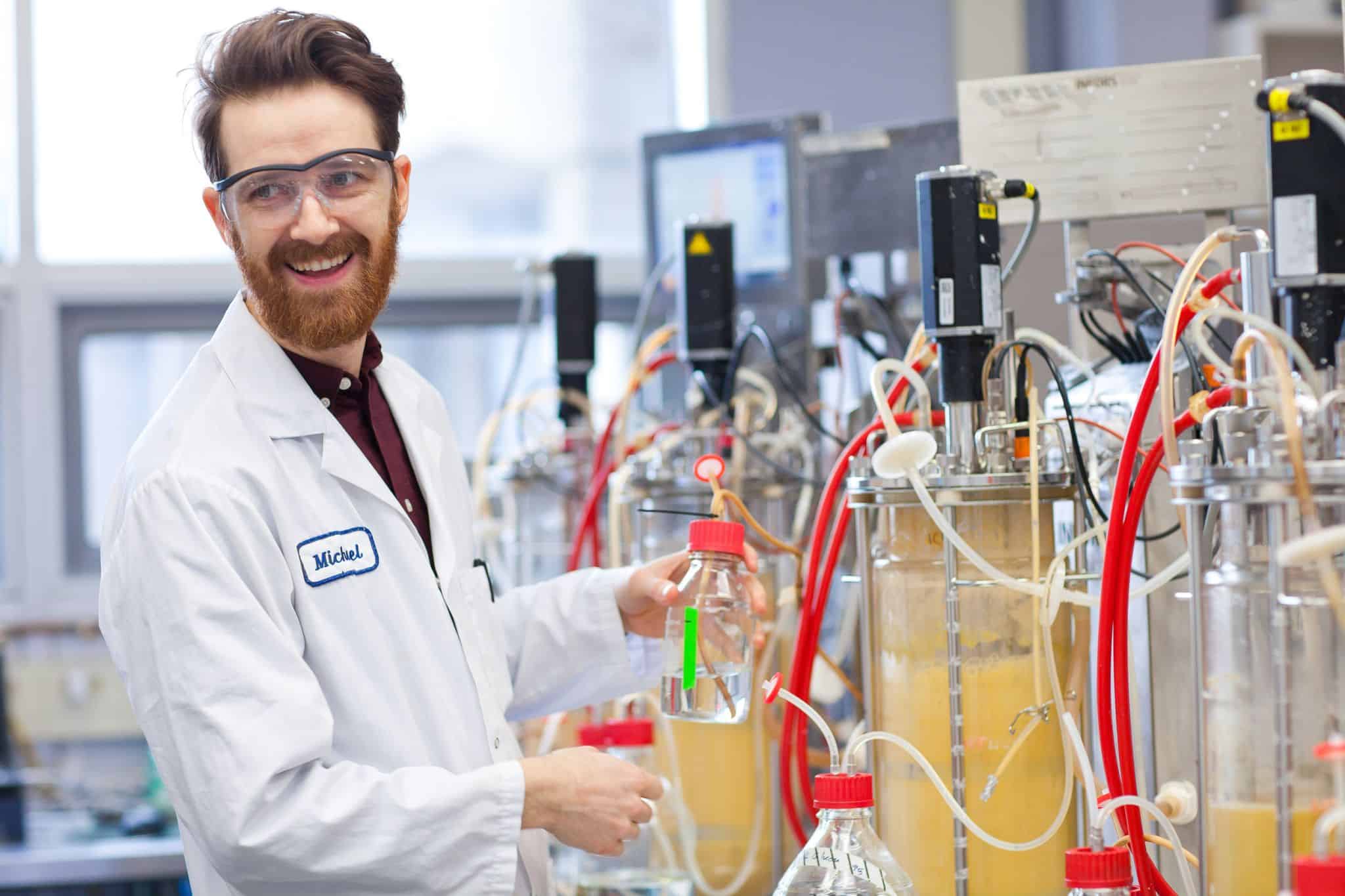Maia Farms Raises $2.7M in Oversubscribed Funding Round to Scale Mushroom & Mycelium-Based Ingredients
Maia Farms, a Canadian food tech company developing mushroom and mycelium-based ingredients, has secured $3.75 million CAD ($2.7 million USD) in an oversubscribed seed equity round. The round was led by Active Impact Investments, with follow-on investments from Nya Planet, Ag-West Bio, PIC Investment Group, and Deep Checks. Maia Farms previously announced strategic and non-dilutive support from Genome BC, Natural Products Canada, Protein Industries Canada, and the National Research Council …
$440 Million in Sales and 1,700 Jobs: Canadian Foodtech Companies Make Impact at 2025 Awards
The Canadian Food Innovation Network (CFIN) has announced the winners of its inaugural Foodtech Frontier awards, which recognize Canadian companies creating innovative solutions in the food industry. The program highlights 25 emerging companies and 10 established industry leaders tackling challenges in sustainability, food security, health, and supply chain efficiency. The winners represent a wide range of foodtech solutions, from food safety and waste management to alternative protein production and packaging …
Mycelium Ingredient Producer Maia Farms Receives $1.75M From Genome BC’s Industry Innovation Fund
Mushroom and mycelium ingredient company Maia Farms has received $1.75 million from Genome British Columbia’s Industry Innovation (I2) Fund. At its lab in Vancouver, Maia Farms upcycles agricultural byproducts to produce fermentation-based mushroom mycelium. The company’s clean-label ingredients can be used by manufacturers to add protein and fiber to a variety of products, from soups to ice cream. Maia Farms is also currently a partner on a Genome BC research …
Opalia Announces “First Ever” Commercial Supply Agreement for Cell-Based Dairy
Canadian cell-based dairy producer Opalia has announced a strategic commercial agreement with major dairy ingredient provider Hoogwegt. The deal is claimed to be the first ever commercial supply agreement for cell-based dairy, and will run for the next two years (2026-2027). The collaboration aims to create sustainable cell-based dairy products and showcase their versatility and global opportunity. Opalia’s proprietary cell-based dairy manufacturing technology will be combined with Hoogwegt’s expertise in …
Mara Renewables Secures $9.1M for Fish-Free Omega-3 Made With Precision Fermentation
Mara Renewables, a biotechnology company developing algae-based solutions for human and animal nutrition, has secured USD$9.1 million from multi-stage investment firm S2G Investments. Mara will use the funding to expand its sustainable omega‑3 platform, increase its R&D capacity, and address critical gaps in global nutrition supply chains. The company has developed a fish-free alternative to conventional omega-3 supplements, using precision fermentation to help microalgae grow efficiently in controlled environments. The …
Alberta Innovates Supports Canada’s Prairie-Based Cellular Agriculture Project with $500,000 Funding
New Harvest Canada has secured a $500,000 investment from Alberta Innovates to support its Cellular Agriculture Prairie Ecosystem (CAPE) Project. This funding will contribute to the $2.4 million, three-year program focused on developing food biomanufacturing technologies in Alberta. CAPE aims to leverage the region’s agricultural resources to create high-value opportunities in the field of cellular agriculture. The initiative is designed to explore how traditional agricultural byproducts can be used in …
Canadian Food Innovation Network Backs Student-Led Projects with $50K in Foodtech Funding
The Canadian Food Innovation Network (CFIN) has awarded a total of $49,982 to five student-led food technology ventures through its NextGen Food Innovators program. The funding supports early-stage food innovations that address key issues such as food safety, waste reduction, and sustainability in the Canadian food sector. The NextGen Food Innovators program is designed to support students developing food technologies that have clear commercial applications. The program helps advance innovations …
Nova Scotia Launches Large-Scale Bioinnovation Centre with Global Fermentation Capacity
Nova Scotia has opened a new bioinnovation facility in Dartmouth that is expected to play a central role in the development of Canada’s bioindustrial sector. The Neptune BioInnovation Centre, a 51,000-square-foot facility, is designed to support large-scale precision fermentation and spray drying, addressing commercial-scale needs in areas such as biotechnology, agriculture, and alternative proteins. The provincial government has allocated $5 million to convert the facility into a multi-user space equipped …
n!Biomachines and Siemens Focus on Simplifying Biomanufacturing for Alternative Proteins
At the ongoing Hannover Messe, The Cultivated B and Siemens have teamed up to present advancements in biomanufacturing for the alternative protein sector. The companies are showcasing their AUXO V® bioreactor, a key technology aimed at scaling alternative protein production through economically sustainable methods. n!Biomachines, a subsidiary of The Cultivated B, is at the forefront of developing bioreactors designed for the food industry and other sectors. These bioreactors play a …
Canadian Food Biomanufacturing Projected to Create 125,000 Jobs by 2050
Ontario Genomics has released an updated Food Innovation in Canada Report, providing economic projections for the country’s food biomanufacturing sector. The report estimates that by 2050, the industry could be valued at $18.8 billion and generate approximately 125,000 jobs. Food biomanufacturing, which includes cellular agriculture and precision fermentation, involves producing food, ingredients, and textiles using biotechnology rather than traditional agricultural methods. The updated analysis, conducted by Dr. Michael von Massow …










